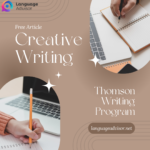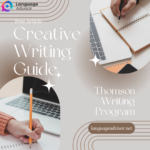Creative fiction. Creative Writing Guide. A Free Practical Guide to Enhance Your Creative Writing Skills
Creative fiction

Creative fiction
Fiction writing allows human creatively to run limitless, creating stories that probe every facet of life and the human experience. This very openness, however, is what can make it seem so challenging—even if you know what you want to write about, how do you begin? Below you will find some suggestions on writing short stories, as well as revising your work, that can hopefully guide you along the way.

Creative fiction – Writing A Short Story
Writing a short story is different from writing a research paper or persuasive essay and many beginning writers can be daunted by the task. Luckily, writing a short story isn’t nearly as difficult as it may seem at first and by remembering some basic tricks you can be well on your way.
What Should I Write About?
Don’t try to make the story too far-fetched. Some of the best stories have seemingly mundane settings and plots. The best stories are believable. It will be the characters that truly shape the story.
If you can’t think of anything, take a story from your own life. Countless professional authors advocate writing from life. Everyone has told a story aloud. Take that story and expand it. Feel free to change it around as much as you like-it doesn’t have to stick to the exact history of what happened.
I’ve Got a Topic—What Now?
The most important thing to remember is that while you are writing it is ok to change something. Feel free to completely change the story if you get a great idea. Sometimes spontaneous ideas are the best.
Keeping that in mind, decide on a point of view. The most common are singular first person and third person. First person uses a narrator who leads the story by saying “I didn’t have enough money” as opposed to third person, which follows a character around by saying “Bob didn’t have enough money.” They both have pros and cons; first person is more personal with a specific character, but third person is more inclusive and lets the reader know what’s going on beyond one character.
Figure out where the story is going to take place. Short stories generally stick to one setting since not much time passes (don’t have a line that reads “three days later, for example), so make sure the setting makes sense. The characters should be there for a reason.
So You’ve Started to Write…:
Remember that you have already done one of the hardest parts; actually writing can be the easier part of the process.
Don’t introduce too many characters you will have to account for and develop later on. Small characters can often be combined for simplicity’s sake.
Keeping a story “simple” and interesting can be difficult, especially if you are writing from life. There is a tendency to include everything that happened, but in reality not every scene is important. If the scene doesn’t drive the plot, don’t include it.
By the same token, include plenty of metaphors and imagery to enhance the “point” of the story. What are you trying to say in the story? What do the ‘ characters learn in the end? Why is this particular story worthy of being told? Whatever answers those questions can be considered the “point.” If you don’t have a “point” right away, don’t worry. Often authors don’t find what they are trying to say until they have finished writing, and sometimes they change the ending to convey a different message. Try to enhance the point by using details and imagery without adding pointless scenes, but if you don’t have a point at first don’t worry–it will come to you.
Creative fiction
“Done”? What now?
Read over your story.
Does the story have a beginning, middle, and end? Something should have been set up, happen, and then be over. If not, try revising your story.
Do the characters (or the reader) learn anything? If not, there is no point to your story. There isn’t anything that makes it worth telling. Something really interesting could have happened but if doesn’t affect the characters then it isn’t a really interesting story. Readers connect best with the characters, not necessarily what happens to them.
Check out some of our other suggestions for revising fiction below.
Remember, there are no “rules” to writing (most of the time). Feel free to break any of these if it makes the story better. These are just guidelines, but they should help if you are struggling. Also, remember to revise. The first draft isn’t always the best; most first drafts can be improved upon.
One last tip: READ READ READ. Read other authors for inspiration by looking critically at how they are deploying technique. The best writers are also pretty active and critical readers.

Revising Fiction
Some basic questions to get yourself (re)thinking:
Is every scene necessary? Are you repeating yourself? Are you missing a scene? List for yourself what your scenes are about. Not just what the action is but what the scene means and how it furthers the story. Remember that a scene moves a story through the use of action, character change and development, and the passage of time. Very rarely do you find a scene that does nothing for the story, no matter how small that something might be.
Have you chosen the right point of view? Is the POV best for viewing conflict? Is it the most interesting and intense (i.e. most appropriate for the story you are telling)? Try to think your character’s(s’) POV out as far as you can, as it can dictate what becomes possible later on…and there may be a part of a character that reveals itself to you via exploring a new POV.
Ask yourself about plot—are the scenes and the revelations within scenes arranged to best effect, for intensity and for cause and effect.
Consider the action or actions that drive your story. Make sure that for every action there is a reaction. This will help keep your story moving. Consider all the reactions to an action and then decide what will give the best effect (and what is plausible to the extent that you are striving for at least some realism/believability).
Look at your characters—are they differentiated enough? Are they individuals? Are there too many for a short story? Is there a character that might have more to say and might make the story stand out if he/she is developed? Is it difficult for the central character to get what he/she wants, or is it too easy? The better you know and understand your characters, the more powerful they become in your writing.
Look at your settings—are they evocative enough, are they part of the story or are they just there as fill-ins?
Does your first paragraph hook your reader? Avoid introductory kinds of things.
Look at the last paragraph. Why did you choose to end there?
Have faith in your story: recaps are not usually necessary.
Save your drafts and never be afraid to try something, even if it does not end up working out.






